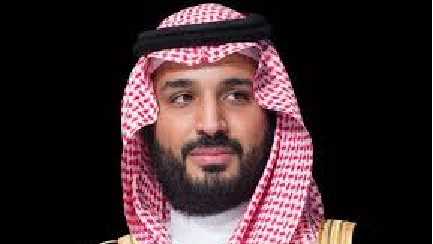
WASHINGTON, June 17 (Reuters) - U.S. President Joe Biden said on Friday he was not traveling to Saudi Arabia's explicitly to meet de facto leader Mohammed bin Salman during a trip next month and said he was seeing the Saudi crown prince as part of a broader "international meeting."
Biden's plans to see the crown prince, known as MBS, are part of his first trip to the Gulf region as president. He has been criticized by U.S. lawmaker, including some from his own Democratic party and human rights advocates, who say the visit is at odds with his promise to put human rights at the heart of U.S. foreign policy.
"I'm not going to meet with MBS. I'm going to an international meeting, and he's going to be part of it," Biden told reporters on Friday when asked how during his Saudi Arabia trip he will handle the topic of the 2018 murder of Saudi journalist Jamal Khashoggi, a U.S. resident and critic of the crown prince.
The president is traveling to Saudi Arabia at the invitation of King Salman along with eight additional heads of state for the GCC+3 Summit, a spokesperson for the National Security Council said.
Biden and U.S. officials will also have a bilateral meeting with King Salman and his team, which will include the crown prince.
As a presidential candidate, Biden said he wanted to make Saudi Arabia a "pariah". However, his struggle to reduce record high gasoline prices this year has complicated the situation as the U.S. urges oil producing nations to boost production to offset Russian losses following Western sanctions on Moscow over its invasion of Ukraine.
Weeks after taking office, Biden shifted U.S. policy on Saudi Arabia, adopting a tougher stance over the kingdom's human rights record and in particular the killing of Washington Post journalist Khashoggi in Turkey in 2018. U.S. intelligence implicated the crown prince in the murder. The Saudi government has denied any involvement by him.
The White House has said, as recently as this month, that Biden's view has not changed.
Washington's desire to improve ties with Gulf monarchies has become more urgent following Russia's invasion of Ukraine as Europe looks to cut its energy dependence on Russia.
The United States is urging Gulf states to publicly condemn Moscow, Western diplomats have previously told Reuters. Gulf states have tried to maintain what they say is a neutral position.




